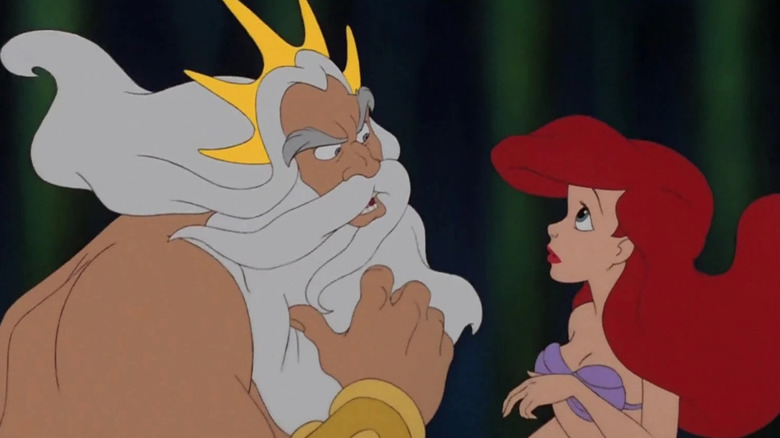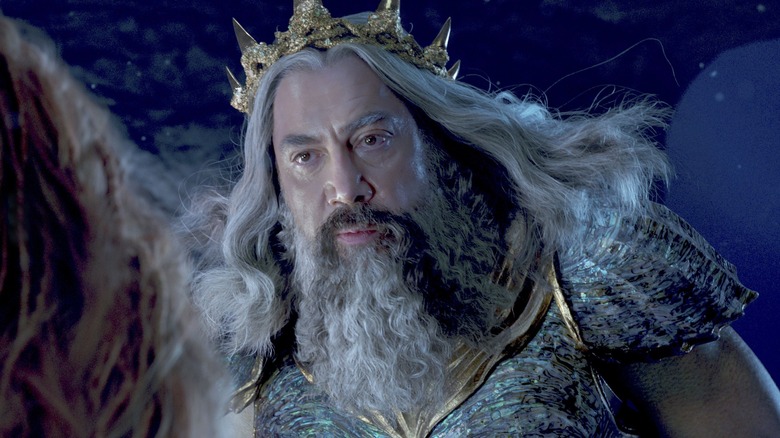How The Little Mermaid Changes King Triton From The Original Movie
The animated version of King Triton in "The Little Mermaid" fits the 1980s stereotype of a hardbody that actors such as Sylvester Stallone and Arnold Schwarzenegger made popular during that era. He has a brutish personality that matches his buff physique. Trition is like a ticking time bomb; his explosive temper is on the verge of erupting the more he learns about Ariel's interactions with humans. He dismisses the entire human race as "spineless, savage, harpooning, fish-eaters, incapable of any feeling."
Although his overprotection comes with a place of love, he is incapable of discussing his aggravated feelings with his daughter and resorts to threats of punishment or destroying Ariel's cave of human objects. The filmmakers visually express his intimidating nature by framing him in shadows, often against the menacing glow of his powerful trident. One of the few times King Triton softens is when he believes Ariel is in love with a merman.
To his credit, King Triton does regret his harsh reactions and blames himself for her disappearance. He struggles to allow his daughter to be herself when he wants to shield her from harm. Overall, he fulfills the stereotypical role of an authoritative father who tries to control his daughter's life and romantic interests, and this comes across in an angry and macho manner. Javier Bardem's take on King Triton in the live-action is less of a tyrannical zaddy and more stoic.
A benevolent Triton
Javier Bardem's portrayal of King Triton is just one of the many changes in the live-action update. For starters, he wears a coat of armor instead of showing off a fit and muscular body. He also treats his daughters more as equals; Ariel and her sisters represent each of the seven seas, rather than just beautiful ornaments who put on musical performances for his kingdom.
Bardem's take on the character is less belligerent, making King Triton's fierce protectiveness over Ariel more focused; he's not just an adult male authority figure having a temper tantrum. His performance reminded me a lot of Pocahontas' father in the animated Disney film: someone who finds strength in his quiet wisdom, a stern but compassionate leader who deeply cares about shielding his loved ones from those he believes are savages.
The pivotal scene in Ariel's grotto is no longer a shouting match. Bardem relies on his quiet intensity and regal stature to get across Triton's frustration. The act of destroying her things is one of desperation, a desperate measure to safeguard his daughter. His anger comes across as fear — especially since the live-action version makes it clear that Ariel's mother died at the hands of humans.
The resolution of Ariel and Trition's conflict is not solely based on his acceptance of Prince Eric but his understanding that she has other expectations for her life. "Thank you for hearing me," Ariel tells him at the end of "The Little Mermaid," emphasizing the importance of mutual respect and understanding in a parent-child relationship. While Bardem's composed approach (or "stoned"-looking, as /Film writer Vanessa Armstrong says) may seem too dialed down, it's refreshing to see King Triton as something other than a raging tyrant.

